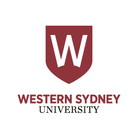Master of Humanitarian and Development Studies
Master of Humanitarian and Development Studies
The only degree of its kind in Australia, the Master of Humanitarian and Development Studies responds to the need for qualified workers in disaster relief and development, in government and non-government agencies involved in humanitarian operations and development practice. This program has 1.0 year, 1.5 year and 2.0 year options….
Categories
COURSE DESCRIPTION
The only degree of its kind in Australia, the Master of Humanitarian and Development Studies responds to the need for qualified workers in disaster relief and development, in government and non-government agencies involved in humanitarian operations and development practice.
This program has 1.0 year, 1.5 year and 2.0 year options.
Humanitarian disasters will continue to occur around the world, and there is a continuous need for skilled humanitarian workers. Change makers like you are required to deliver specialist humanitarian aid relief to people dealing with disasters. That’s the focus of our Master of Humanitarian and Development Studies.
This degree encompasses both the aid and health sectors with a focus on rehabilitation and development. Through a mix of practical and theoretical learning you’ll gain an understanding of the complexity of development and see how humanitarian assistance works hand-in-hand with international development aid efforts.
With the Master degree you’ll also gain a truly global point of view with international placement with one of our education partners. Mixing online and on campus learning, the Humanitarian and Development programs are available at a Master, Graduate Diploma and Graduate Certificate level.
Tailored towards individual needs and interests, this degree is linked to the specific industry requirements of humanitarian and development practitioners.
Your career
As a humanitarian and development studies graduate, you can look forward to career opportunities in:
Humanitarian Relief
Aid Development Programming
Project Managing
Disaster Relief Work
Policy Development
REQUIREMENTS
Entry Pathway 1 (80 credit points)
Applicants must have successfully completed any one of the following:
Bachelor honours (AQF8) degree in a related discipline; or
Bachelor degree in a related discipline, plus two years’ relevant work experience; or
A Graduate certificate or graduate diploma in a related discipline.
Entry Pathway 2 (120 credit points)
Applicants must have successfully completed a Bachelor degree or equivalent in a cognate or relevant discipline.
Applicants with a non-cognate (unrelated discipline) degree
Entry Pathway 3 (80 credit points)
Applicants must have successfully completed any one of the following:
Bachelor (Honours) degree in any discipline, AND two years’ full-time equivalent relevant professional experience, or
Graduate Certificate or higher, in any discipline and two years full-time equivalent documented relevant professional experience, or
Bachelor degree in any discipline, and five years’ full-time equivalent relevant professional experience
Entry Pathway 4 (120 credit points)
Applicants must have successfully completed a Bachelor degree in any discipline, plus two years full time equivalent professional experience in related roles, or five years full time equivalent general work experience.
Entry Pathway 5 (160 credit points)
Applicants must have successfully completed a Bachelor degree or equivalent in any discipline.
Applicants seeking admission on the basis of work experience must support their application with a Statement of Service for all work experience listed on the application.
English Language Requirements:
IELTS: 6.5 overall score (min 6.0 in each subtest); TOEFL internet-based score of 82: Writing 21, Speaking 18, Reading 13, Listening 13; Pearson Test of English Academic (PTE): 58 overall; No communication skills less than 50.
EDUCATIONAL INSTITUTION
Western Sydney University is located in New South Wales and operates out of 13 accessible campuses across Sydney (Bankstown, Liverpool City, Campbelltown, Sydney City, Sydney Olympic Park, Parramatta, Parramatta City, Westmead, Penrith and Hawkesbury). The student body numbers more than 35,000. With a mix of modern high rise and heritage buildings, equipped with technology-enabled learning facilities, libraries, research facilities, and studios, the University covers a wide range of academic programs including the School of Business, School of Computer, Data and Mathematical Sciences, School of Education, School of Engineering, Design and Built Environment, School of Health Sciences, School of Humanities and Communication Arts, School of Law, School of Medicine, School of Nursing and Midwifery, School of Psychology, School of Science, School of Social Sciences and the Graduate Research School.




